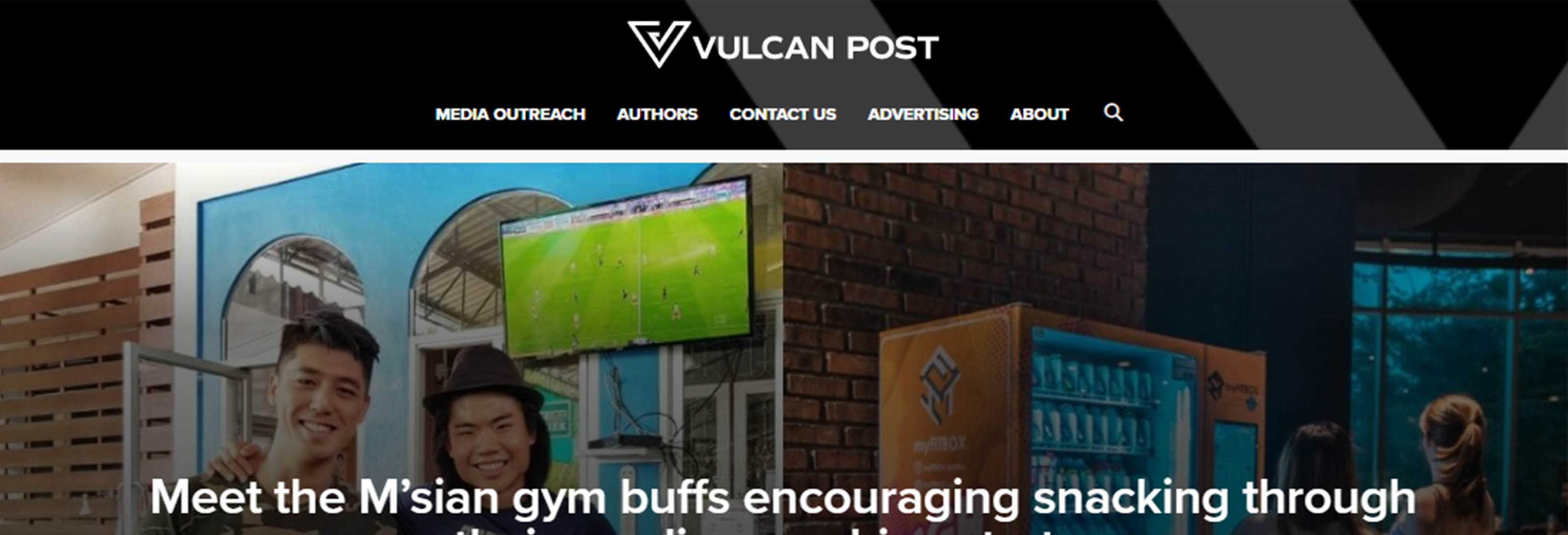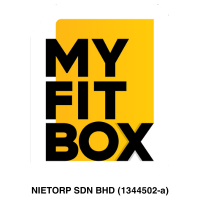
Meet the M'sian gym buffs encouraging snacking through their vending machines startup
myFITBOX is a vending machine startup in Klang Vallet that sells healthy nutritious snacks for fitness conscious people.
By Joycelyn Tan
Most snacks sold in convenience stores tend to contain high levels of sugar, sodium, or fat. I’ve had my fair share of sugar-cutting periods where the best solution was to not buy anything sugary. After all, out of sight, out of mind.
But Geoffrey (Geoff) and Heywood had a different take on this. While on a vacation in Chalong, Phuket, the gym buffs were impressed with the healthy snack options there, from keto coffee to protein smoothies and milkshakes.
What’s more, something as simple as a frozen yogurt shop would print the nutritional details of each item on their menu for their levels of protein, carbs, and fat.
They thought, “There has to be a convenient way of getting these healthy snacks and drinks back home. Why did we have to make an order online, wait for weeks, and pay for ridiculous shipping fees?”
Thus came the idea to found a vending machine business offering healthy and nutritional snacks, calling it myFITBOX.
Within 2 days, Geoff and Heywood drafted their marketing plans, including myFITBOX’s logo while on the flight home from Phuket. It was then a matter of contacting the food brands they liked, speaking to gym owners they knew, and of course, vending machine companies.
“To be very honest, we did not think too much about it or did our homework when we started the business! In hindsight, it was probably better this way by taking the opportunity first, then figuring out how to do it later,” Geoff told Vulcan Post, regarding their market validation.
myFITBOX first gained traction in January 2020 at a gym, since its team already had connections in the fitness community. With its adoption rate growing, they began receiving enquiries from other sectors like shopping malls, international schools and sports complexes.
“For example, the founder of Oasis International School heard our interview on the radio station and was keen on offering functional and healthy snacks to the students of his school,” Geoff recalled. The timing of it added up too, since the opportunity was in line with the founders’ intention to grow myFITBOX’s network beyond the fitness community.
While myFITBOX has varying agreements with the fees required to operate in different premises, the business mainly operates on a profit-sharing basis with the locations.
On top of providing accessibility to healthy snacks for customers, the profit-sharing model allows premises to make a secondary income to cover the machine’s costs, but more on that later.
Taste testing everything
Customers can find both locally made and globally recognised brands such as Myprotein, Grenade, and Barebells inside myFITBOX’s vending machines. The duo noted that their vetting process for snacks is their favorite part of the job—taste testing everything.
New brands are discovered through their own shopping sprees, suggestions from customers, or brands reaching out to them for R&D purposes.
“What is of more importance to us is to taste test the products and to study the nutritional facts carefully. We deal with the authorised distributors or the manufacturers themselves to ensure that these are genuine products,” they explained.
If necessary, the team will even send the products for a lab test to confirm all the ingredients and nutritional facts are as stated.
myFITBOX deals with its brands through 3 methods—outright purchases, consignments, and machine listings.
For outright purchases, the team buys the products in bulk and marks up their prices based on their judgement on the appropriate value for the products. While for consignments, suppliers are only paid after their products are sold.
Brands who go through the machine listing method are charged with a listing fee depending on where they’re placed inside the vending machines. That means, brands get to choose how many columns they take up in the machine, and which row they’re placed on. This method can attract more revenue if placed strategically, usually at eye-level.
A self sustaining machine
As mentioned, while vending machines can be a secondary income for businesses, having one still requires an investment. Electricity costs for a vending machine can also range between RM90 to RM100 per month, as it uses LED lights and a cooling system.
Geoff also noted that vending machines can be costly and operationally heavy, factoring in maintenance costs and manpower to fix its malfunctions. However, he’s grateful to report that the revenue garnered by each myFITBOX unit is generally enough to cover its maintenance cost over a period of 1-2 years.
Although the majority of myFITBOX’s machines are offline at the moment, units in shopping malls are still operational as people are still going to supermarkets. Meanwhile, the business’s online sales via its website, Grab Mart, Shopee, and Lazada are currently helping it ride the waves of uncertainty amidst the MCO.
Perhaps merely keeping their heads above water is an understatement though. The team shared that myFITBOX is now profitable due to the strong growth of its online sales and careful management of operational costs.
Under normal circumstances, their 30 vending machines around Klang Valley would generate an average of RM2,000 to RM2,500 per machine monthly, excluding online sales.
“We have purchased more machines to roll out as soon as the restrictions are lifted and we are still on target to achieve our aim of 200 machines by the end of 2023,” said Geoff, who added that he’d like to expand to other Malaysian states too.
The team’s long term goal is to also produce a wide range of myFITBOX’s own products. It will best cater to those around the globe who appreciate healthier alternatives when it comes to snacks and drinks.
(Vulcan Post published on online on July 2, 2021)
Link to original story here!
